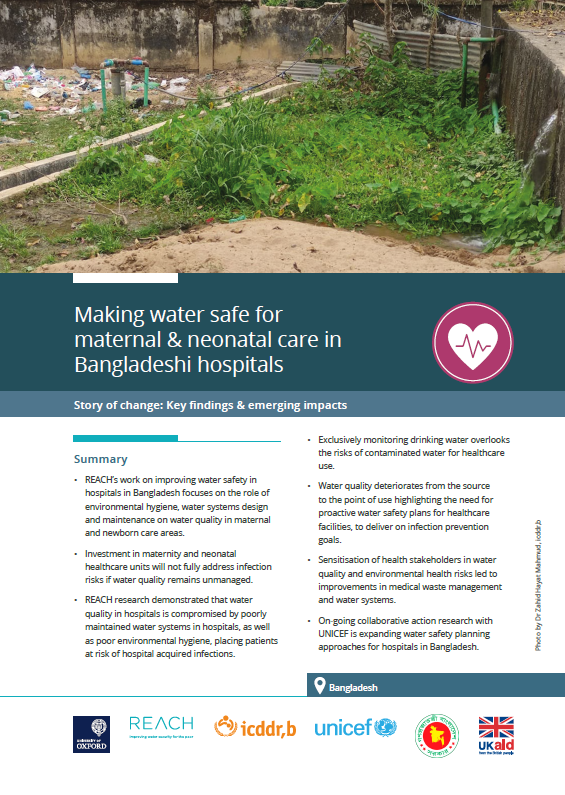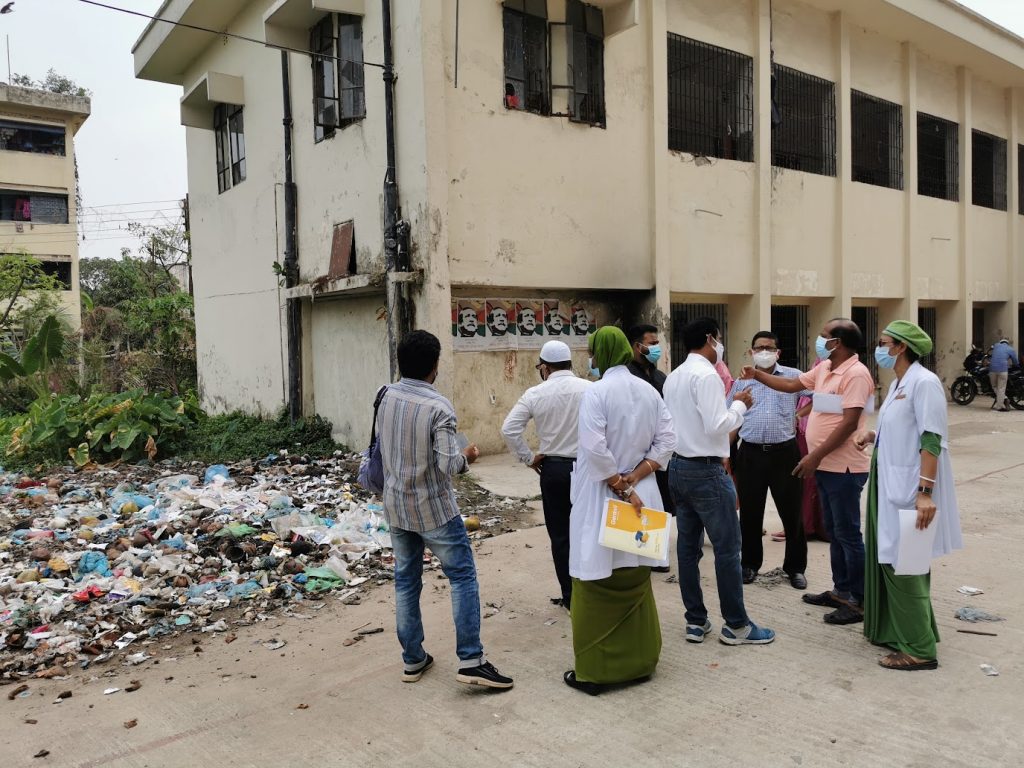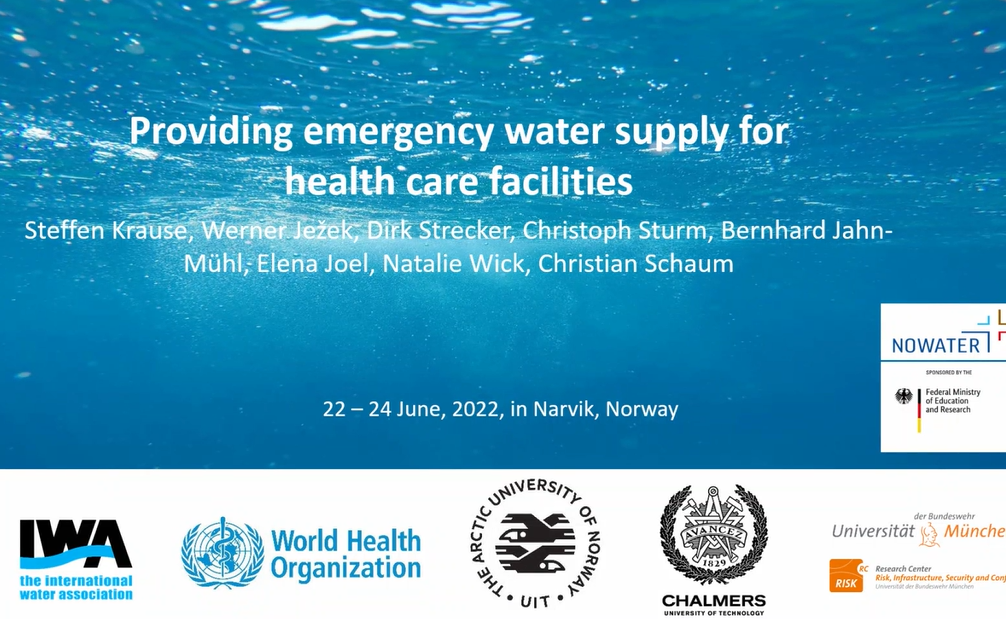
Improving water security for the poor

Making water safe for maternal & neonatal care in Bangladeshi hospitals
Currently 77% of Bangladesh healthcare facilities have improved on-premises water supply, but there is no systematic data on the quality of the water for drinking or providing care. In partnership with UNICEF Bangladesh, the REACH programme undertook a pilot study to examine water quality in 14 rural public hospitals across eight districts, for both drinking and use in care giving.
The study demonstrates that water quality in hospitals is compromised by poorly maintained water systems in hospitals, as well as poor environmental hygiene, placing patients at risk of hospital acquired infections. It finds that water quality deteriorates from the source to the point of use, highlighting the need for proactive water safety plans for healthcare facilities, to deliver on infection prevention goals.
The collaborative research is expanding water safety planning approaches for hospitals in Bangladesh, creating transformative change at the facility level and informing care policy at the national level.


